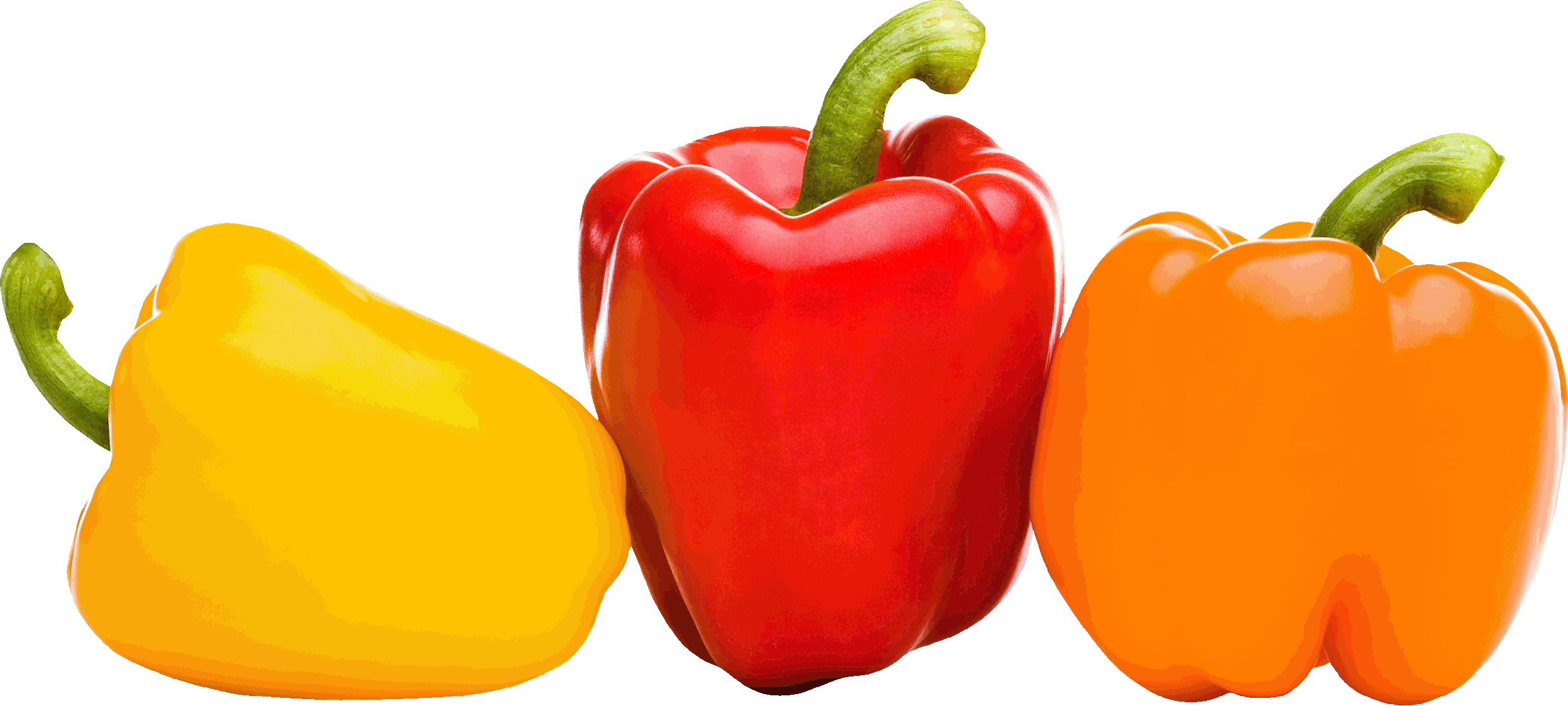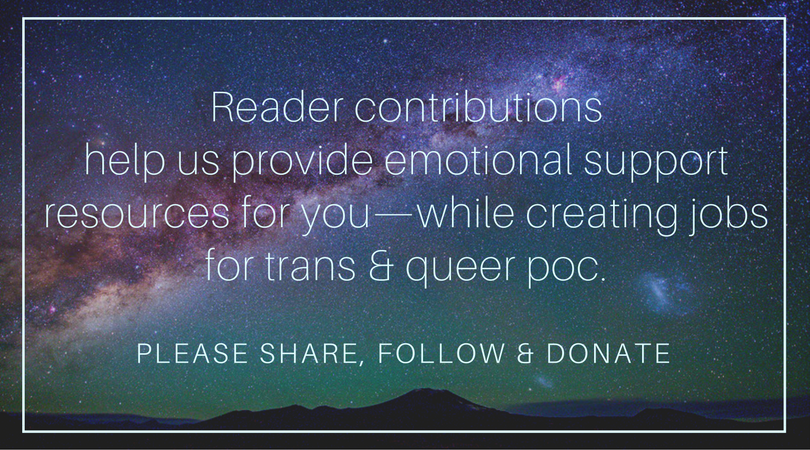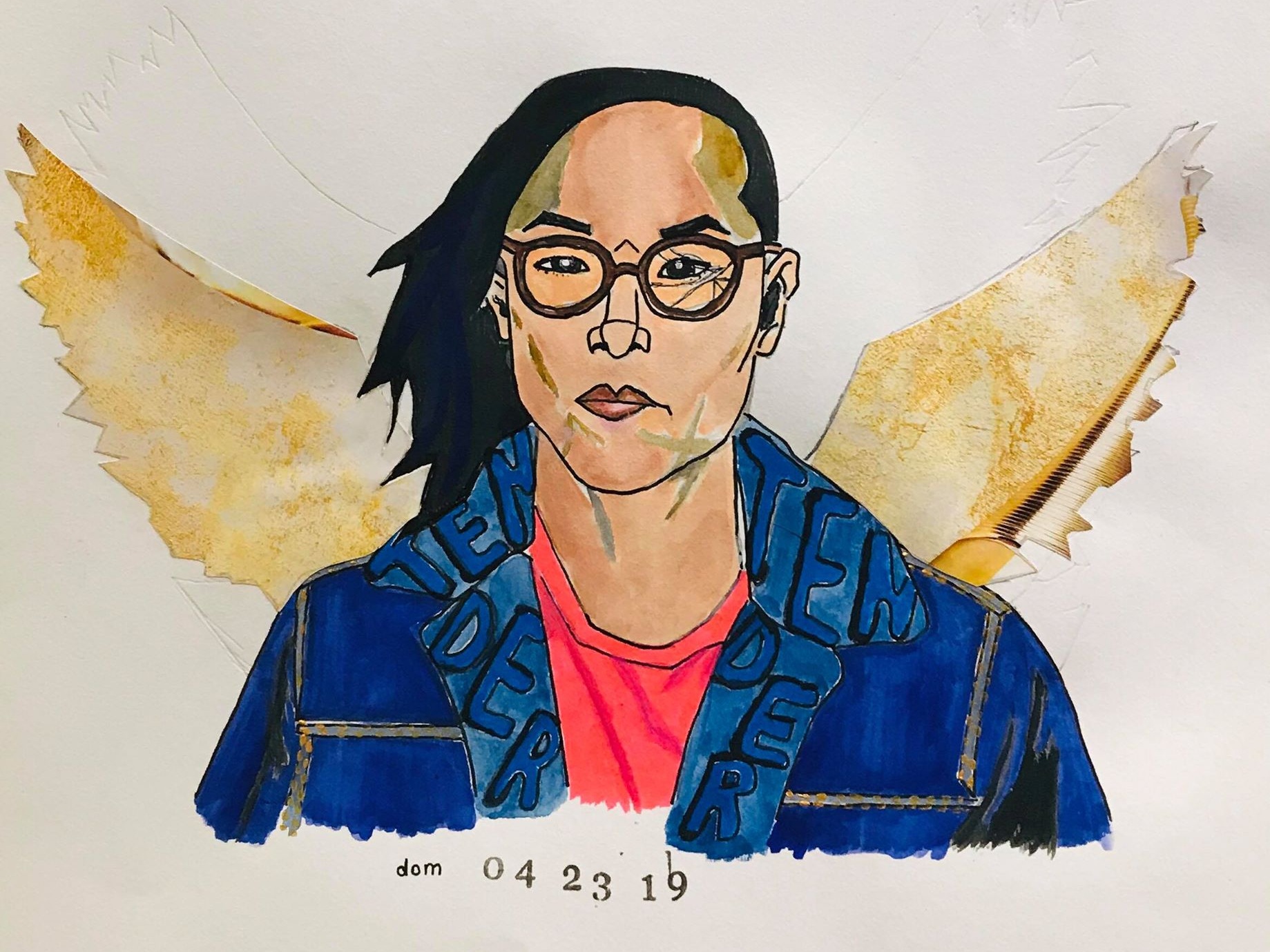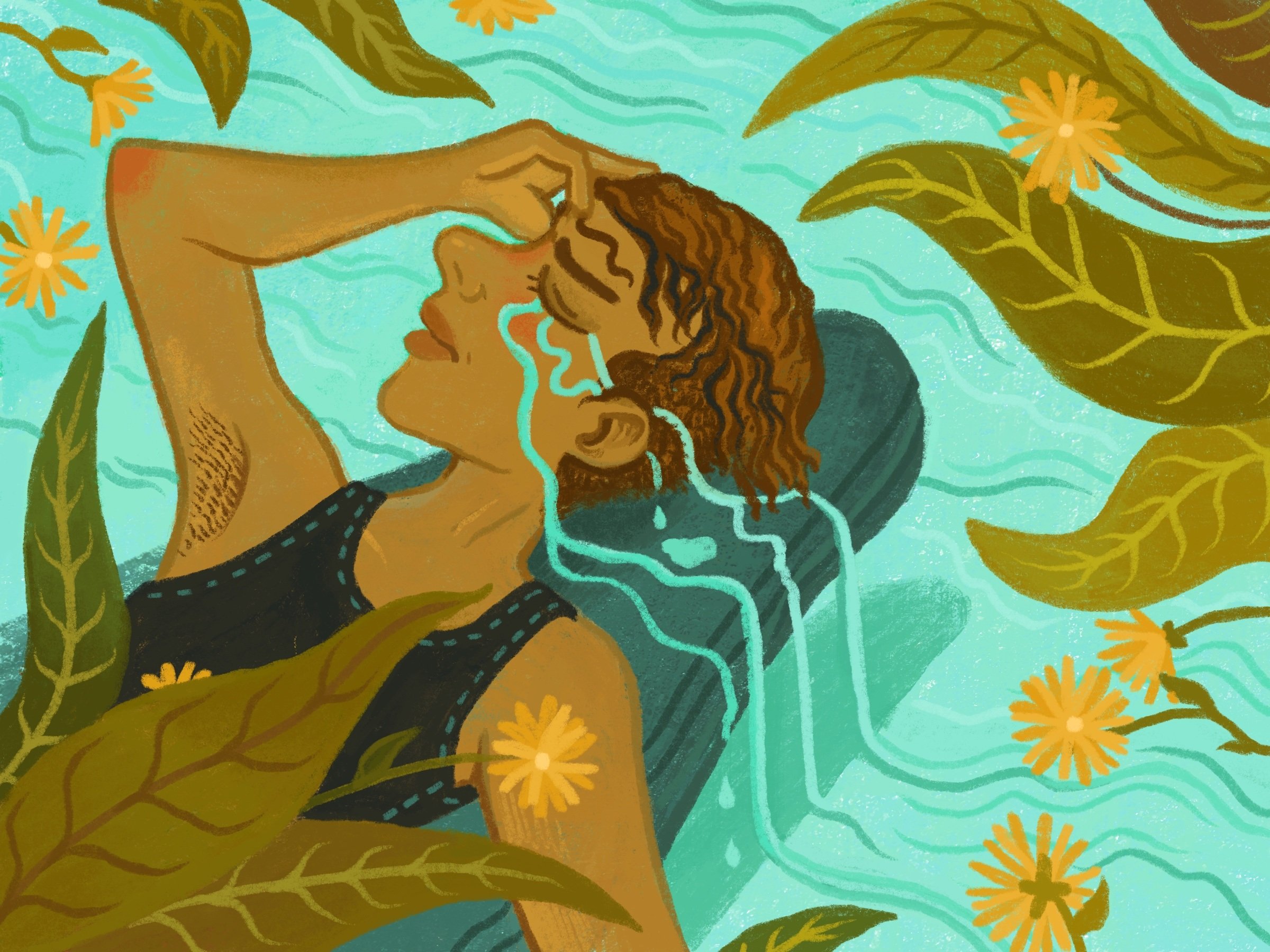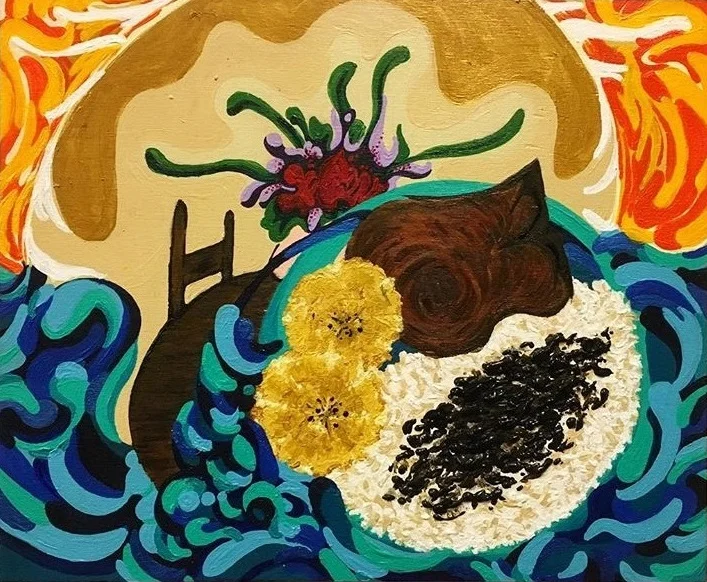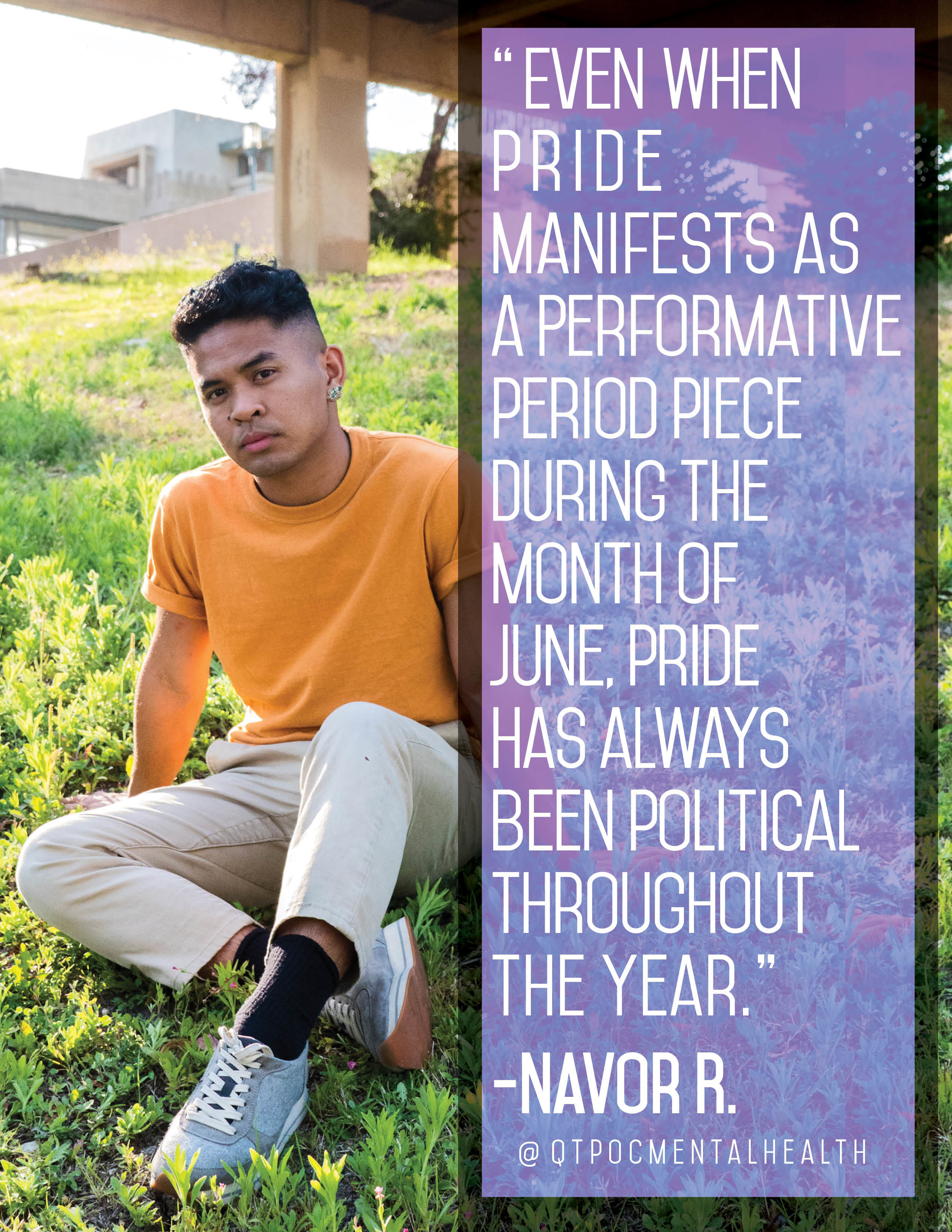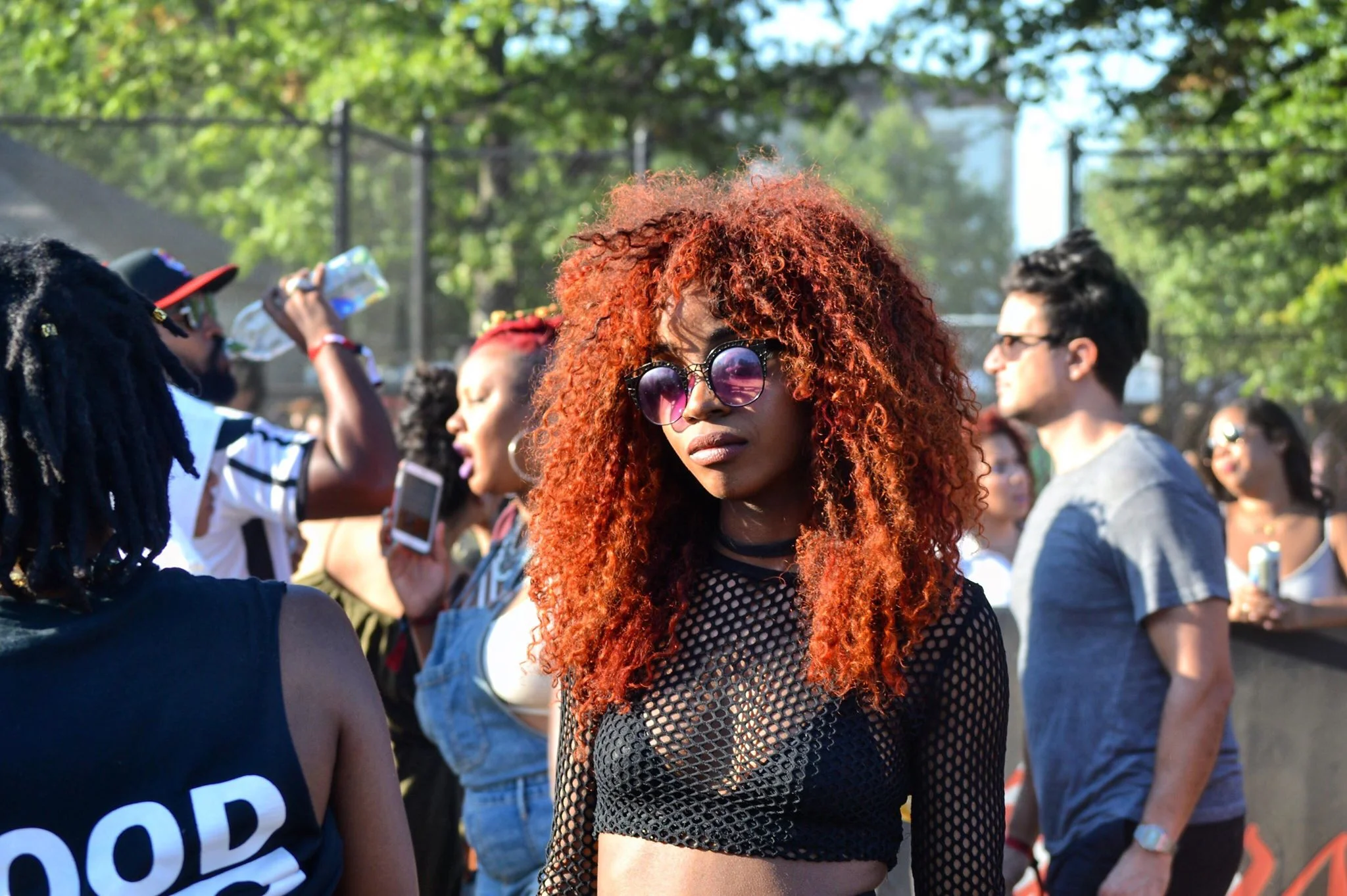Photo by Zayn Thiam
In a world where we can see such horror, where need is televised and known, where every inch of the globe seems to be weeping in some kind of sorrow, and where so many people down the street and in our lives are afraid for their very safety, how do we help each other and not die?
I know for some of us, it doesn’t literally feel like dying. But getting tapped for support means a huge loss of mental energy, the same energy that keeps us going. When we are targeted as much as those we’re trying to help, that takes a toll and can impact our survival.
I got a social work degree a while ago – plus the millions of self-care speeches that come with it. Some are decent, and some downright condescending and annoying. So let’s fast forward through all of those and move on to a different way of thinking about self-care.
In this vein, I use a particular idea that comes from spending way too much time watching M*A*S*H as a child.
[CN: mention of blood]
Think about donating blood, a physical act that helps others heal.
You have to have time in between giving blood to someone who needs it. You have to eat food and replenish those cells. There’s only so much blood you can give in your body and only so much you can give safely. If you don’t rest and give too much, you can die, and the supply ends.
But if you rest, take breaks, eat food and replenish, the supply can continue, and you can help many more people than you could with just the current contents of your body.
And if you have days where you are anemic, or lacking in iron, or just too tired and you need that blood for yourself, that’s cool. There will be other blood donors. You can give again later.
The world won’t stop needing blood, any more than it will stop needing people who care for and help others. (Unless we invent synthetic blood or something like that, but go with me here.)
Your need to replenish does not mean you are denying the world your ability to help.
It means you are maintaining yourself for the world and for yourself. Because let’s not forget, we get to live and be alive and not be actively miserable 24/7 too. That’s ok. It might not feel ok some days, but that is ok.
And if this feels like a cop out or feels impossible or feels somehow wrong, that’s cool. I struggle with this concept almost every single day. Because somewhere along the line, I got the idea that helping people meant denying myself. That if I took something for myself, it meant I was stealing from someone else.
I’m not saying that there aren’t aspects of privilege where we have to be careful about how our actions affect others, and we do have to be conscious of the possibility of creating self-care that isn’t acknowledging what others may have to do to provide for our care.
But if we can only care for ourselves after going through three thousand permutations of compulsion on whether it might, possibly theoretically, not be the best plan for the world and ourselves, we end up with what my good friend Jessy calls “the bell pepper problem.”
Jessy went into the grocery store to buy a bell pepper. While he looked at the bell peppers, he wondered if they should buy organic or not.
Then he wondered if organic pesticides were really better.
Then he wondered if organic was really creating food economies that were unsustainable for other people, or if buying organic meant being co-opted into movements that held within them elements of classism.
This continued for some time.
He eventually left the store without a bell pepper that he needed for the meal he planned to cook himself that evening, and so his sustenance of his body that was necessary for life became a source of anxiety and self-flagellation.
Now I’m not saying that we can’t always do without the “bell peppers” in our life. Sometimes, we don’t need the thing we’ve gone to get, or there’s a reason to look into the source of sustenance.
Yet when you are hungry and in need, you have to eat something.
When you are tapped in your heart and soul, something must fill that space. That something may have some aspects to it that you aren’t psyched about or may be a complicated act for you. Yes, we can find the most ethical options, and we can find the most eco-friendly and yes, we should many times, if we can afford it and if fits within our ethics.
But when you are hungry, you must eat. Hunger will not disappear because there is injustice in the world. Need will not disappear because you are tired. It will continue to exist.
You are a finite resource.
You are a gift to this universe, in some way, which you may not know yet or you may know. Your finite self has some limitations that are not negotiable, but may be different from person to person.
Our denial of our needs (and to be clear, needs, not wants) does not create a more just world. There are aspects of denial that could create a more just world, and I am sure if you are reading, you may know some. But food, shelter, safety and caring relationships are not those things. Those are necessary to all.
I will close with part of one of my favorite poems by Mary Oliver, “Wild Geese.” It’s not perfect, but it is good enough.
You do not have to be good.
You do not have to walk on your knees
For a hundred miles through the desert, repenting.
You only have to let the soft animal of your body
love what it loves.
Tell me about your despair, yours, and I will tell you mine.
Meanwhile the world goes on.
….
We need community support to continue publishing!
Articles and artwork like these are only possible through your contributions. Please donate today to sustain the wellbeing of artists, writers, healers, and LGBTQ2IA+ people of color.
You can also support our team by picking up
a Rest for Resistance print zine.
Image description:
A dark-skinned person is lying down on a bed with orange sheets. The shot is close to focus on the face and torso as the person relaxes. Their eyes are closed, locs splayed on the bed. One arm is raised and wearing a blue wrap bracelet and a beaded bracelet with a hand-shaped charm.
About Zayn Thiam:
Zayn Thiam is an African queer artist living in D.C. after 27 years of hopping around the globe. Photography, writing, painting and henna tattooing are a few of their loves. They are also an energetic healer and loves to read the tarot for themself and others. See their artwork at @negrotesque and @twocameracats on Instagram.
About Shivani Seth:
Shivani is a queer 2nd generation Punjabi-American living in the Midwest. Her work and interests include social work, improvisational theater and intersectional activism. Discover more of their writing on Social Work Revolt and Twitter @ShivaniSeth05.
.
